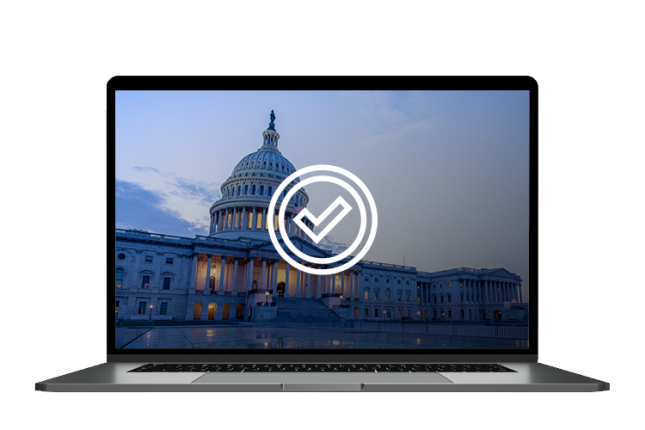Welcome to the Compliance Matters newsletter, your one-stop shop for benefits compliance news! The employee benefits landscape is in a state of constant change. Get timely, accurate news regarding impactful legislative changes – and the resulting requirements, exposures and opportunities.
Employee Benefits Compliance Alerts
Departments Provide RxDC Guidance and Delayed Enforcement
- Starting in 2022, health plans and issuers must annually submit certain information about prescription drug and healthcare spending to the Departments.
- The first report for reference years 2020 and 2021 was due December 27, 2022.
- On December 23, 2022, the Departments released good faith relief for reasonable compliance and a grace period for late reporting.
- The new guidance also included clarification on multiple submissions, submission by email, data aggregation and reporting on vaccines and claim amounts not applied to deductibles.
CAA 2023 Includes Telemedicine Relief for HSAs
- Telemedicine fees must be at least fair market value (FMV) when offered in conjunction with a high deductible health plan (HDHP).
- Temporary relief from the FMV rules has been in effect since 2020.
- Congress recently passed legislation extending relief for two more years.
HRAs & HSAs Can Be Compatible
- Health Reimbursement Arrangement (HRA) design will determine whether high deductible health plan (HDHP) participants can also maintain eligibility to contribute to a health savings account (HSA).
- A general-purpose HRA offering will make all participants ineligible to contribute to an HSA.
- A post-deductible HRA or limited-purpose HRA will not interfere with HSA eligibility.
- In building out a plan design involving an HDHP and HRA, employers should carefully consider how it will be administered.
Compliance Considerations: Moving from Fully Insured to Self-Funded
- Employers who choose self-funded group health plan coverage often do so to gain more flexibility with plan design and save money, but there are additional responsibilities and considerations that generally do not apply to fully insured plans.
- Most employer-sponsored plans are subject to the Employee Retirement Income Security Act (ERISA), which requires plans to name fiduciaries (typically the plan administrator[s]), who are responsible for carrying out certain fiduciary duties in accordance with ERISA.
- Self-funded plan sponsors will be more directly responsible for plan compliance than fully insured plan sponsors.
Transparency in Coverage Compliance Continues
- On November 12, 2020, the Department of Health and Human Services (HHS), the Department of Labor (DOL) and the Treasury finalized the Transparency in Coverage Rule (TiC).
- TiC requires health insurers and group health plans to post machine-readable files and create a price comparison tool for plan participants.
- Plan sponsors will need to rely heavily on carriers and third-party administrators (TPAs) for assistance with compliance.

Additional Updates & Resources
Reminder! Medicare Part D Disclosure to CMS Coming Up for Calendar Year Plans
Each year, group health plans must disclose to the Centers for Medicare and Medicaid Services (CMS) whether the prescription drug coverage offered to Medicare Part D eligible individuals is creditable or non-creditable. This disclosure is due no later than 60 days after the start of the plan year, which is March 1, 2023, for calendar year plans beginning January 1, 2023. The disclosure form is fairly simple and must be completed online. CMS provides the disclosure form along with instructions and screenshots showing what information is required. This disclosure is in addition to the Medicare Part D Notice of Creditable/Non-Creditable Coverage provided to individuals that is due annually before October 15.
IRS Finalizes Deadline Extension for ACA IRS Forms
In December, the Internal Revenue Service (IRS) released final regulations extending the deadline to provide Affordable Care Act (ACA) forms 1095-B and 1095-C to individuals from January 31 following the end of the reporting year, to 30 days after January 31 following the end of the reporting year. Previously, the IRS had extended the deadline each year since the first reporting year. The permanent extension is welcomed guidance for employers complying with the ACA IRS reporting requirements annually.
HHS Provides Proposed 2024 Notice of Benefit Payment Parameters
On December 12, 2022, the Department of Health and Human Services (HHS) through the Centers for Medicare and Medicaid Services (CMS) released the proposed Notice of Benefit Payment Parameters (NBPP), determining annual adjustments to cost sharing under the Affordable Care Act (ACA). The proposed cost sharing limits for plan years starting in 2024 are $9,450 for self-only coverage and $18,900 for other than self-only coverage, which is a 3% increase from the 2023 limits.
New HHS Proposed Rule for HIPAA and Substance Abuse Disorders
In November 2022, the Office of Civil Rights (OCR), a division of the Department of Health and Human Services (HHS), issued proposed changes to the Confidentiality of Substance Use Disorder (SUD) Patient Records rules, which protect patient privacy concerning matters of substance abuse disorders. The intent of the changes is to increase efficiency and align the rules with the Health Insurance Portability and Accountability Act (HIPAA). Melanie Fontes Rainer, Director of OCR stated, “HHS understands how critical it is for patients to better align the Part 2 rules and program with HIPAA. This proposed rule helps decrease burdens on patients and providers, improves coordination and increases access to care and treatment, while protecting confidentiality of treatment records.” The proposed rule was published in the Federal Register on December 2, 2023, and comments will be accepted for 60 days following publication.
Visit our Compliance Insights page for alerts, webinars and featured articles based on your questions – and check out all our Employee Benefits Insights.
Visit our Compliance page and see how our
EPIC team can help your business thrive!


